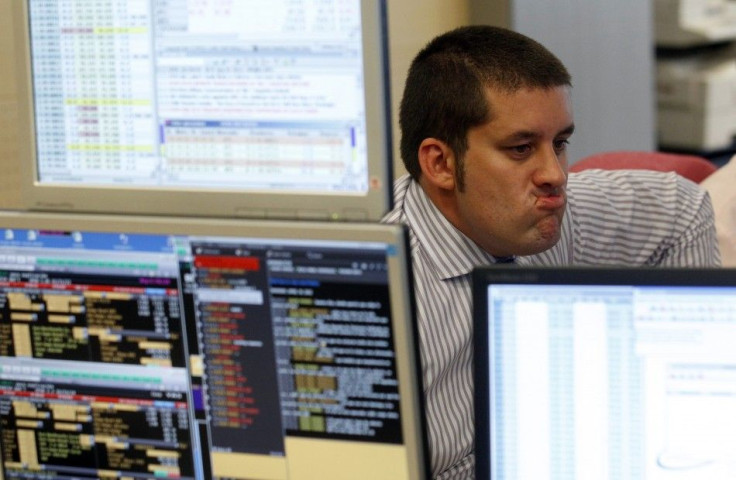The Market Will Solve It
Opinion

When trying to explain real-world problems, economists always say things like: The market will sort it out, or, The market will decide what's best. In fact, the faith economists have in markets often appears downright religious in its reverence, sometimes even approaching the communion of mystics. This is turn makes economists something of a laughing stock to those who see only empty clichés in economic writing. However, economists are often responsible for this attitude toward them, frequently failing to convey a few simple truths underlying their discussions about the market and what the market does.
It's the term market that causes a lot of the confusion. The meaning of the word is vague, and many interpretations can be attached to it; typically, its chosen meaning is the one which reinforces the ideological stance of its user. This point is most obvious when discussing the market's role as a self-regulator, and the limits the market places on harmful behavior.
When faced with proposals to regulate the market, most economists would point to the market's very strong capacity for self-regulation. Government regulation, it is argued, is at best redundant and at worst positively disastrous. But what can we mean when we say that the market is behaving in some way or other, or that it is regulating itself? Is this just vague anthropomorphizing?
Again, the problem often stems from loose metaphors. Take Adam Smith's famous invisible hand, for instance. Try explaining to the passers-by that we don't need legal restrictions on market activities because there is an invisible hand that will sort it all out. You're far more likely to inspire your own commitment to the local mental health center than social change. This is why it is necessary to constantly remind ourselves exactly what it is we mean when speaking in such metaphors.
Smith wasn't positing the existence of some all-seeing economic force which would magically solve problems. All he meant was that the division of labor (and thus, the market) makes it in everyone's interest to serve the interests of others. So even when we talk about competition in the market, we're really talking about a powerful form of social cooperation.
To return to the meaning of the market and market regulation, the problem seems to be that when we talk about the market self-regulating, the implication is that producers, e.g. the big corporations, are doing the regulating. This seems outrageous to many people. How can we trust such organizations to do anything good for us? Why would they do anything but serve their own selfish interests?
It is a mistake to think of things in this way. In genuinely free markets, it is not corporations but consumers who ultimately do the policing. To say that a market will regulate an industry means that the actions of potentially millions of individuals, along with their unique preferences and demands, are what drive the decisions of producers. Consumer decisions determine whether to reward firms through profits, or to punish firms for poor decision-making through losses. Every decision firms make moves them one way or the other. There is simply no way to behave other than to strive to satisfy the customers. Only when the influence of consumers is compromised do corporations obtain any kind of power worth fearing. And that is exactly what happens when government regulation replaces market (read: consumer) regulation.
The constant threat of losses looms large for even the biggest firms, and businesses desperately want relief from consumer demand and the uncertainty of the market. Enter government regulation. Using the law to restrict the competition is often simpler than competing in terms of quality or quantity. Forcing others out of the market, or prohibiting them from entering it in the first place, is an effective way to secure market share. Regulation works to the advantage of those lucky enough to be on the winning side, and hurts everyone else.
All government action in the economy creates privileges and promotes the interests of some at the expense of others. One might counter by asking: Don't markets also create privilege as well? Don't they determine who is rich and who poor? Yes, but what makes government regulations different from market regulation is that government acts with the force of law; it institutionalizes and enforces the advantages it bestows.
In unregulated markets, entrepreneurs are at the mercy of consumers, and must either produce things that are deemed valuable, or lose their shirts. Advantage is gained and lost according to this ability. Once regulation interferes with profit and loss, however, it becomes possible for firms to avoid passing the market test. Firms can get away with decisions that would otherwise prove disastrous because the consumers have few other options. The law prohibits competition, despite often being marketed as a social blessing, under the guise of increasing health, safety, or economic stability.
This was one of the sad ironies of the Occupy movement; the regulations proposed by many protestors would have actually helped the corporations they wanted to control, not restricted them. Although the Occupy movement is now an all-but-forgotten fad of 2011, some of its ideas remain in the hearts and minds of people throughout the world.
These people often fail to understand the insidious nature of government intervention, especially how it actually establishes and secures the perverse relationship between business and government that causes economic chaos.
Matt McCaffrey holds a master's degree in economics from Auburn University and is currently a PhD candidate in economics at the University of Angers. He is also the editor of Libertarian Papers.
© Copyright IBTimes 2025. All rights reserved.




















